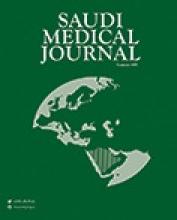Abstract
OBJECTIVE: To evaluate the profile of the requestors, the number and content of questions which were received during the period of May 2000 - December 2002.
METHODS: A total of 1967 requests were evaluated. The questions were sorted according to source of callers, caller identification, the content of the questions, search data and time required to answer the questions. All data analysis were performed using the Statistical Package for Social Sciences Version 9.0.
RESULTS: The questions were received from different places, including Riyadh (90.1%), overall the Kingdom (8.9%) and gulf countries (1%). The Drug and Poison Information Center (DPIC) provides information to pharmacists, community, employee of King Saud University, physicians, nurses, dentists and others. The type of requests most frequently inquired about were drug related, health related, article/information, and poisoning. Requested data include information about therapeutics uses, drug identification, articles, adverse effects, dosage/administration, drug interactions, poisoning, with very few questions about availability, pregnancy and lactation, and IV incompatibilities. The most common resources used were Drugdex and internet, reference books, Iowa Drug Information Services (IDIS), PubMed and Poisondex. The time devoted to the service is varied ranging from 5 minutes to weeks.
CONCLUSION: This study emphasizes on how important to document type of the activities of the DPIC to be used as a vital quality assurance tool. It also revealed the need to stimulate more requestors particularly physicians by advertising the drug information activities or possibly by establishing a website for the DPIC.
- Copyright: © Saudi Medical Journal
This is an open-access article distributed under the terms of the Creative Commons Attribution-Noncommercial-Share Alike 3.0 Unported, which permits unrestricted use, distribution, and reproduction in any medium, provided the original work is properly cited.






